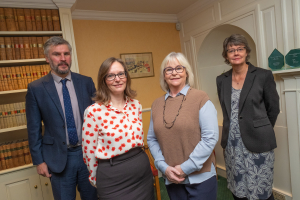
Sara Frost
Making a will is essential if you wish to ensure that your loved ones are provided for in the event of your death. If you do not make a valid Will, a strict set of rules known as the ‘intestacy rules’ would apply to your estate. These rules determine who would benefit from your estate and you would not have any control over this. Making a will allows you to decide what will happen to your money, property and other assets after your death.
A common misconception is that if you are married or in a civil partnership, all of your estate would pass automatically to your spouse or civil partner on your death. Your spouse or civil partner would in fact inherit a fixed sum and the balance would be held in an on-going trust, or distributed between other relatives. The result is unlikely to be satisfactory. If you are unmarried, your partner would not be entitled to any part of your estate unless you had made provision for them in a Will.
A Will can also deal with the appointment of a suitable guardians for children, so if you have young children it is essential to ensure that those children will be cared for in the event of your death.
Furthermore, a professionally drafted Will can help you minimise or even eliminate Inheritance Tax.
It is very important to keep your Will under regular review to ensure that it continues to set out your wishes, particularly in light of changes to your assets, your personal circumstances and the circumstances of other family members, the circumstances of executors and/or trustees named in your Will and Inheritance Tax legislation.
If you would like to make your new Will, update your existing Will, or discuss any other estate planning issues, please contact Nicholson Portnell and speak to Alan Douglas, Sara Frost, Rebecca Griffiths or Michelle Forster.






